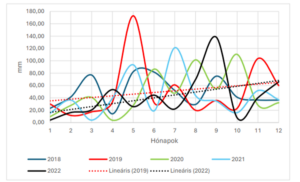WOODCircle Erasmus+
On September 12, 2024, Daniella Koós DLA, a designer and associate professor at the Design Department of Széchenyi István University, and Secretary General of the Hungarian Furniture and Woodworking Association – Fabunio, gave a presentation to students majoring in Industrial Product and Form Design Engineering about the WOODCircle Erasmus+ project. Since the end of 2020, the Hungarian Furniture and Woodworking Association – Fabunio, in collaboration with five other institutions, has developed an Erasmus+ funded online course worth 1 ECVET point.
The project partners are:
- ATLANTIC TECHNOLOGICAL UNIVERSITY from Ireland;
- FEDERAZIONE ITALIANA DELLE INDUSTRIE DEL LEGNO DEL SUGHERO DEL MOBILE E DELL’ ARREDAMENTO ASSOCIAZIONE and CONSORZIO DEL MOBILE SCPA from Italy;
- CENTRE DE DIFUSIO TECNOLOGICA DE LA FUSTA I DEL MOBLE DE CATALUNYA from Spain;
- MAGYAR BÚTOR ÉS FAIPARI SZÖVETSÉG from Hungary;
- and INTERPROFESSIONNELLE AUVERGNE RHÔNE ALPES from France.
The goal of the WOODCircle Erasmus+ project is to address the dual transformation of the industry, focusing on the creation of a new profile for the circular and sustainable wood industry. This transformation aims to address both technical and environmental issues, supporting an ethical process that is production-based while respecting sustainability principles (e.g., waste reduction, recycling, and the use of eco-friendly materials). The project results in 25 hours of new, collaboratively developed learning material. The high-quality online course is available in 5 European languages as an open and free online course. The course quality is ensured and reinforced by an experimental test conducted in five countries, following the dual system methodology and including mixed virtual and physical mobility between different European countries.
Students showed interest in the online training related to their specialization, which also offers new opportunities for growth and advancement in the industry.
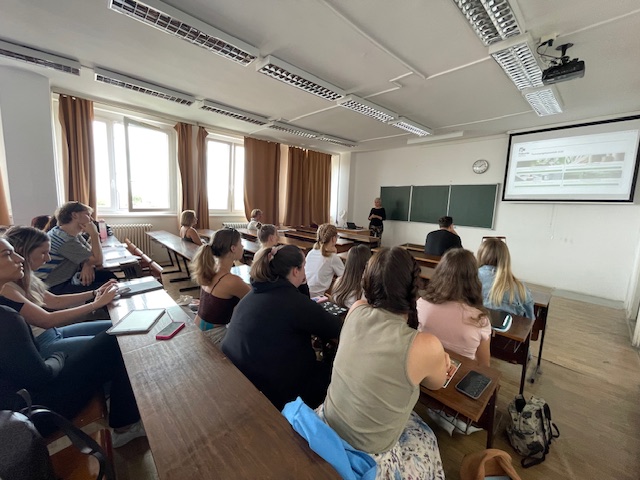
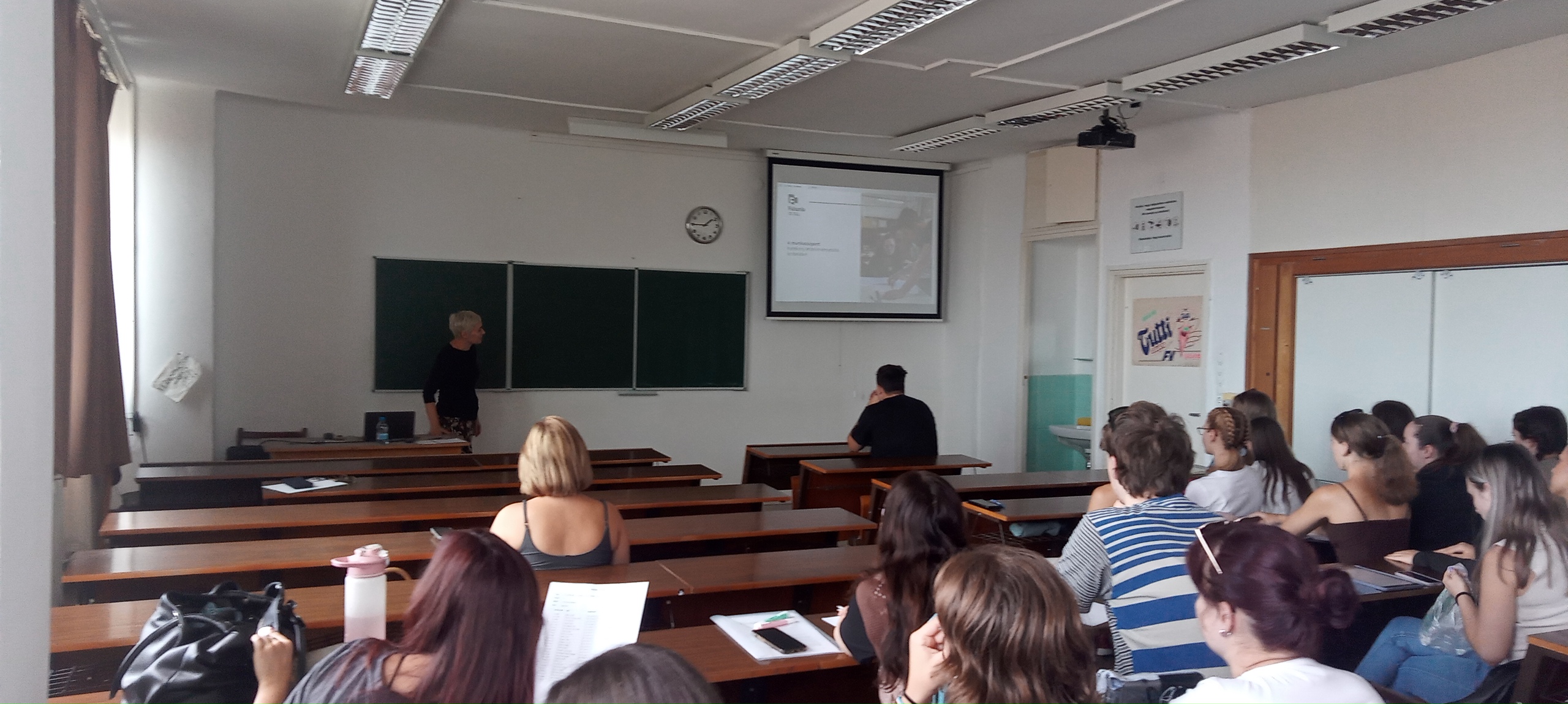
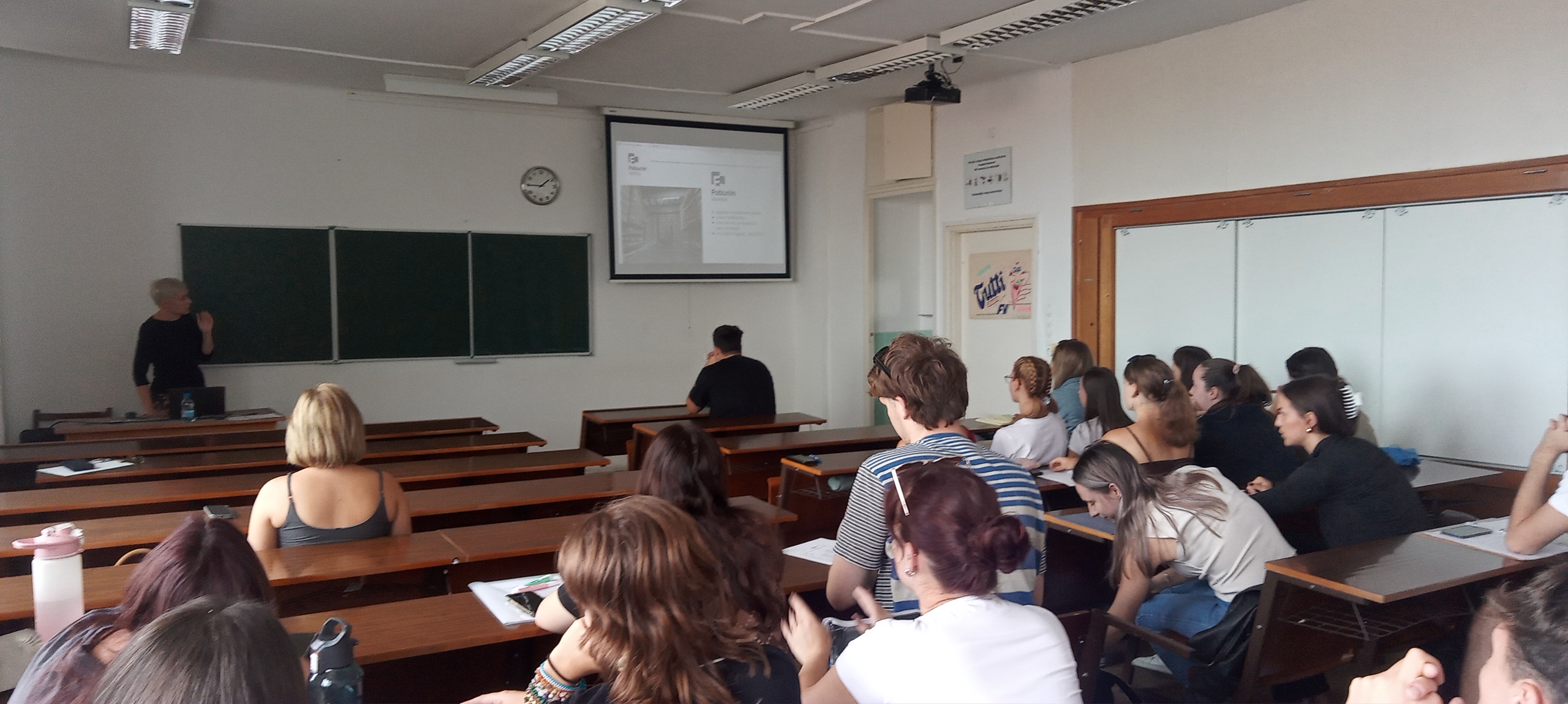

The New Semester Started at Rejtő Faculty
The Rejtő Faculty of Obuda University hosted an important event: in keeping with the institution’s tradition, the faculty and staff held a staff meeting to mark the start of the new academic year.
At the event, the faculty staff looked back on the past academic year, evaluating the results achieved and the objectives for the autumn semester of the 2024/25 academic year and plans.
The meeting noted that the Faculty has continued to achieve outstanding results in teaching and student recognition, as in previous years. The participants also discussed recent research projects, successful professional collaborations, and the development of teaching methods.
Dean Dr. habil László Koltai highlighted the importance of student satisfaction and presented new initiatives to further improve the learning environment. The expansion of dual training, the strengthening of international relations, and support for student innovation activities were discussed.
The all-staff meeting was an opportunity for the ERC staff to learn about the main tasks and challenges for the autumn semester 2024/25. The educational tasks were presented by Dr. Rita Bodáné Dr. Kendrovics Rita, Deputy Dean for Education, and the research tasks by Dr. Edit Csanák DLA, Deputy Dean for Research. The participants agreed that joint efforts will further strengthen the Faculty’s position in higher education and ensure the best possible learning conditions for students.
„Rejtő Faculty remains committed to quality education, research, and innovation. My staff are looking forward to the new academic year with great determination to ensure that the institution remains at the forefront of higher education in Hungary,” said the Dean after the event.
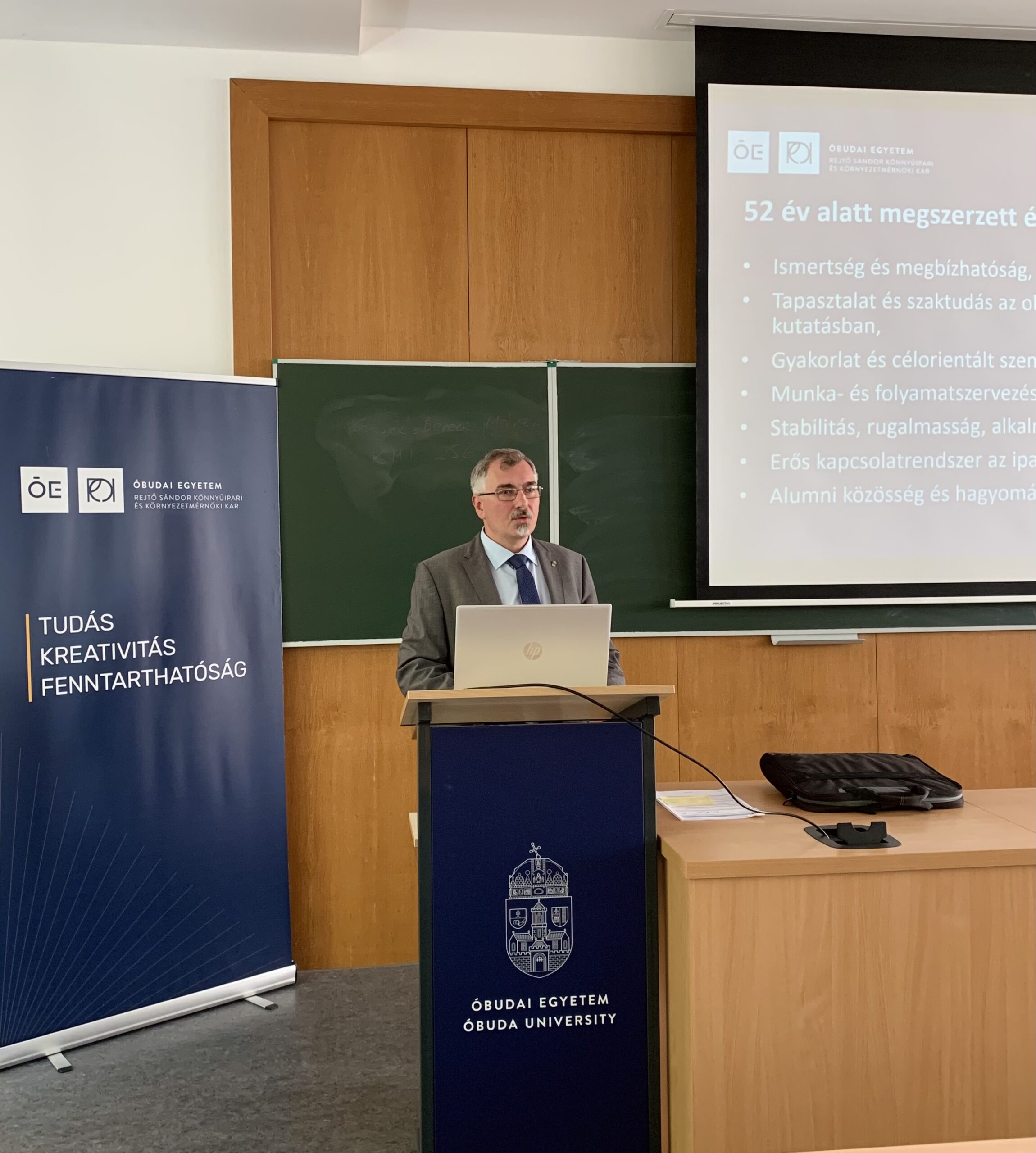
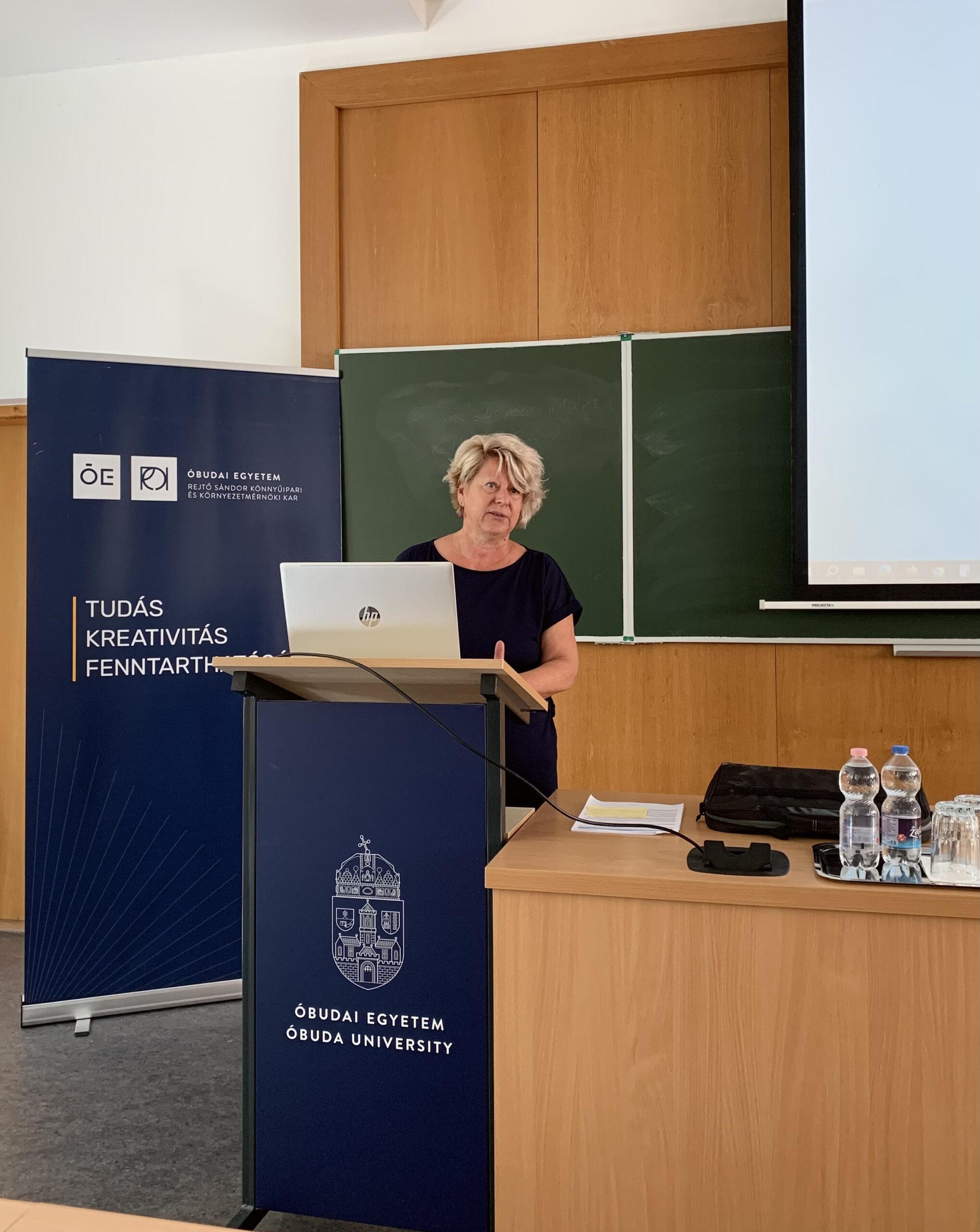
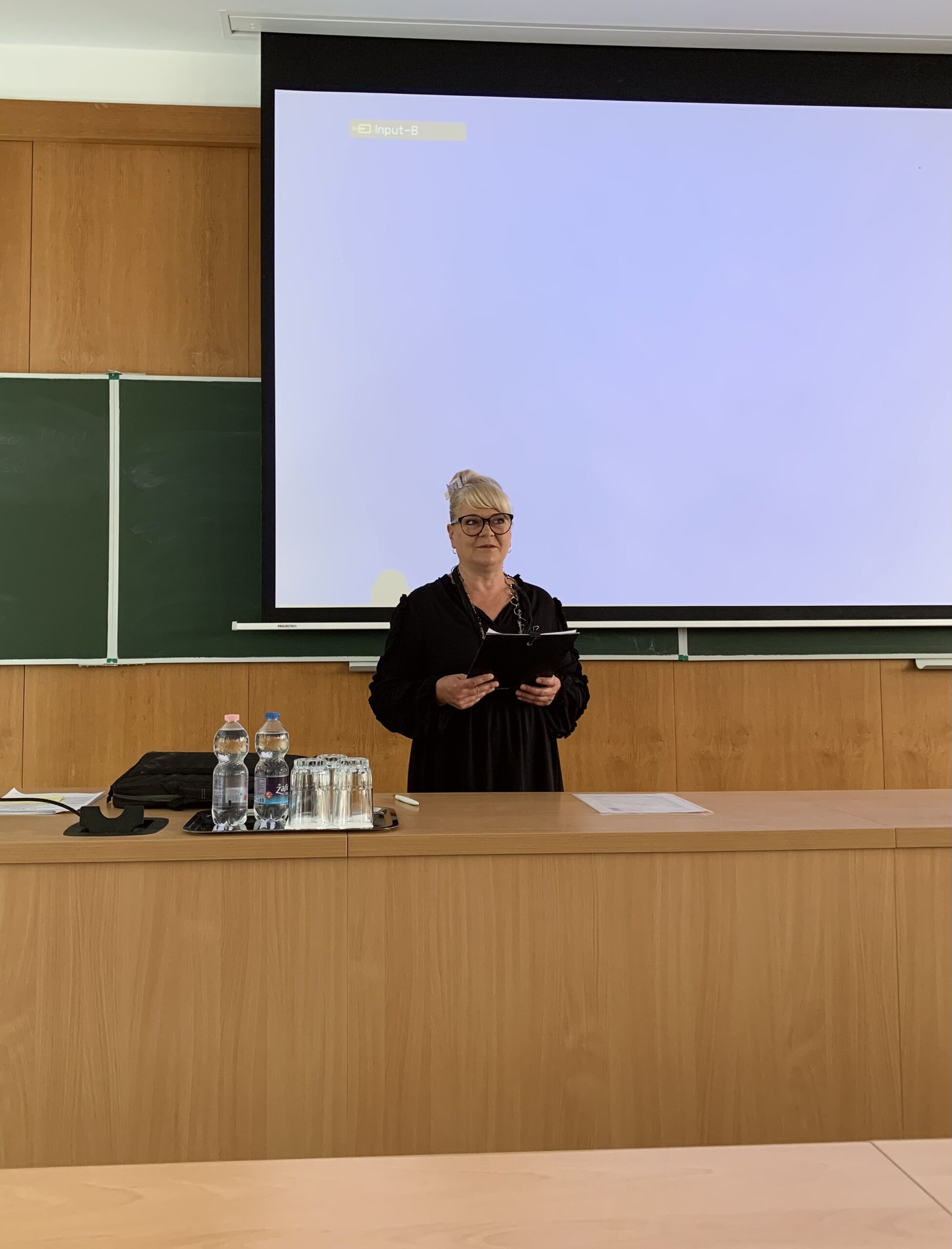
CoFarm4Cities project

Another milestone of the CoFarm4Cities project was achieved by the colleagues of the RKK Institute of Environmental Engineering and Natural Sciences of Obuda University. They prepared a study presenting the possibilities of applying sustainable technical solutions supporting the efficient cultivation of the land. Exploratory studies were carried out on the territory of the future urban farm designated in the suburban environment of Csúcshegy in Óbuda. Based on these, the document proposes the establishment of rainwater collection that reduces groundwater use, the establishment of community composting accessible to people living in the area, which helps maintain the fertility of the soil, and possible ways to supply the area with energy and renewable energy.
#cofarm4cities #sustainable #rainwater #compost #environmentalprotection #irrigation #obudaiegyetem #uni-obuda

Field trip on Csúcs-hegy
The lecturers of Obuda University discussed the inclusion of the CoFarm4Cities sample area in educational tasks during 🔭📖 a field visit. The construction of the city farm continued during the summer with the cleaning of the area 👨🌾, which was carried out by the lead partner of the project – the owner of the Óbuda sample area – Óbuda-Békásmegyer Municipality.
#cofarm4cities #obudaiegyetem #uni-obuda #sustainable #environmentalprotection #urbanfarm

Biodiversity on urban farm
Beforehand the construction of the CoFarm4Cities project community garden, both native 🌸and ruderal weed species 🏵 are flourishing in the abandoned gardens. As a result of the construction, weed species will certainly be reduced, but the population of steeper plots will provide shelter for native species 🌲🌳. The population will be preserved and the surviving species of the former ecosystem will be preserved.
#cofarm4cities #obudaiegyetem #uni-obuda #sustainable #environmentalprotection #urbanfarm #biodiversity
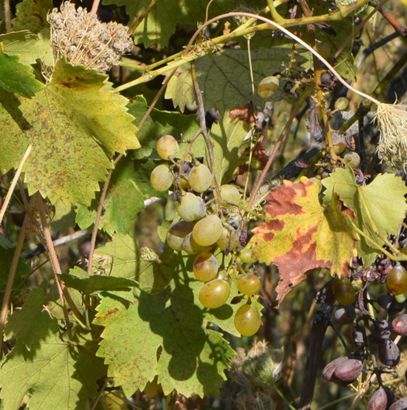
Grapes ripen
In the pilot area of CoFarm4Cities’ community garden in Óbuda, there might be a harvest of fruit even before the start of the works 👷: walnut trees and vineyards are also growing. Since the cultivation of the area was abandoned many years ago, the crops 🍇 are certainly chemical-free crops.
#cofarm4cities #obudaiegyetem #uni-obuda #sustainable #environmentalprotection #urbanfarm #grape
Irrigation water in CoFarm4Cities’ Óbuda community farm
In preparation for the project implementation, a study was carried out on the potential supply of irrigation water. The experts assessed the existing wells on the designated plots and their surroundings and prepared a plan for the necessary developments. The conditions are already in place for two plots of the site, while the groundwater collection shaft and water shafts for mechanical units still need to be built on the other three plots. Although the potentially collected water does not cover the amount of irrigation water needed, it can supplement it, thus reducing the amount of groundwater extracted from individual water supply.
The planned system will also serve as a demonstration, thus helping to raise awareness and provide an opportunity for the quality analysis of collected rainwater. Furthermore, it can provide data on whether rainwater is available in sufficient quality for irrigation or even for use as toilet flush water after mechanical pre-treatment on a simple gravel filter layer.
Figure: Monthly rainfall amount between 2018 and 2022 Budapest, at János hill measuring station
(Source: https://odp.met.hu/climate/observations_hungary/monthly/ in CoFarm4Cities D.1.3.3 Application of sustainable technical solutions in the Csúcs-hegy Urban Farm pilot project (Rita Bodáné Kendrovics Ph.D., Krisztina Demény Ph.D., Csaba Ágoston Ph.D., Norbert Berecz – Obuda University Rejtő Sándor Faculty of Light Industry and Environmental Engineering, Institute of Environmental Engineering and Natural Sciences)
#cofarm4cities #sustainable #rainwater #environmentalprotection #irrigation #obudaiegyetem #uni-obuda
